What would Menzies do? How to save the Liberal party
This is a testing time for our party, and it’s not just because we’re losing elections. The Liberals need to go back to basics and remember the strengths of its founder’s tradition, writes Tony Abbott.
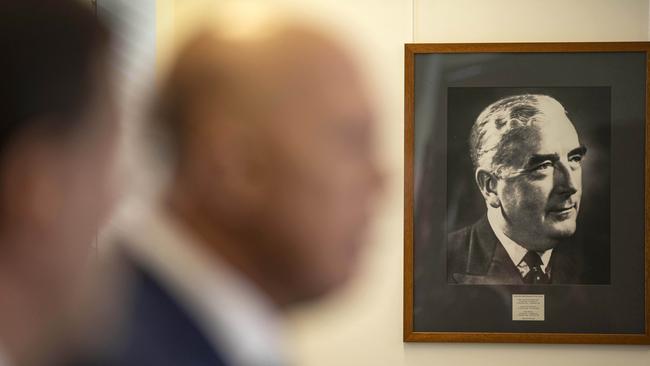
This is a testing time for our party, and that’s not just because of our federal loss. It’s not just that we’re losing elections, because no political party can expect always to win, certainly not in any real democracy, but that we’re no longer quite sure what it is that Liberals believe and how that might translate into policy. At the heart of our disquiet is the current difficulty distinguishing a Liberal government from a Labor one, apart from Labor’s institutional links with the union movement and chronic tendency to entrench union prerogatives.
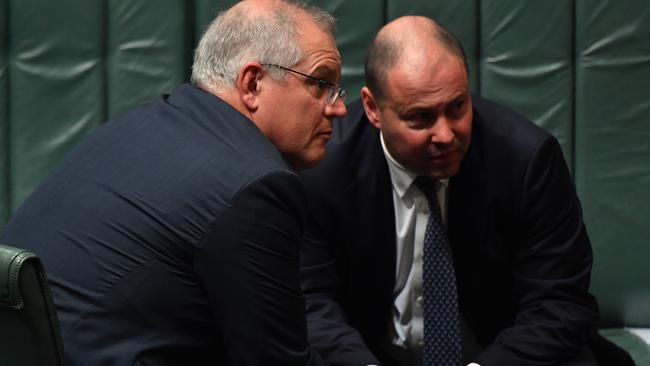
Despite the federal Coalition’s original objective, to end Labor’s debt and deficit disaster, the Morrison government – albeit with the pandemic as justification – ended up leaving the country with record debt levels for peacetime and no clear path back to surplus. And through the so-called national cabinet process, the Coalition became complicit in a form of health dictatorship, especially in Victoria – unprecedented even in wartime. Even if there were little alternative, it was at odds with our instinct for smaller government and greater freedom.
Then there’s the state Libs who are sometimes more keen on higher emissions targets, just as ready to see government spending as the solution to everything, and hardly less susceptible to identity politics, as the ALP.
True, this question of what the centre-right stands for isn’t confined to Australia. The British Conservatives seem to have given up on leaner, stronger government, which was one of the reasons for leaving the EU. Too often, Conservatives aren’t conservative and Liberals aren’t Liberal. The centre-left is split too, between the traditional working class and the zealots of climate and identity. But the fact that we are not alone in our uncertainty doesn’t change the fact that a house divided cannot stand.
Of course, any political movement that wishes to command a majority can’t be too hard-line; can’t be heavily ideological; and can’t be too pure to win – but it still has to stand for something, even if that’s only having clear policy distinctions with the other side. As John Howard often said, politics is a contest of ideas. It’s rarely about finding common ground with the other side. Nearly always, it’s about being a clear alternative. And lest anyone think that’s too hard line, in 1996 and in 2013, being clearly different, the Liberal National Coalition had thumping wins. Even in 2019 we had a “miracle win”, campaigning strongly against Labor’s climate policy, only then partially to adopt it.
As Peter Dutton said on becoming leader, the challenge is not to be more right wing or more left wing. It’s to be more authentically Liberal.
In a long public life, Sir Robert Menzies was careful not to define himself. He was a practical politician, determined to make things better by his own lights, as best government could. Indeed, he was the embodiment of the type of conservatism that I’ve sometimes described as “pragmatism, but pragmatism based on values”. And in the 1954 “We Believe” statement that the Liberal Party still subscribes to – albeit in different forms in different states – he elaborated the values of his party.
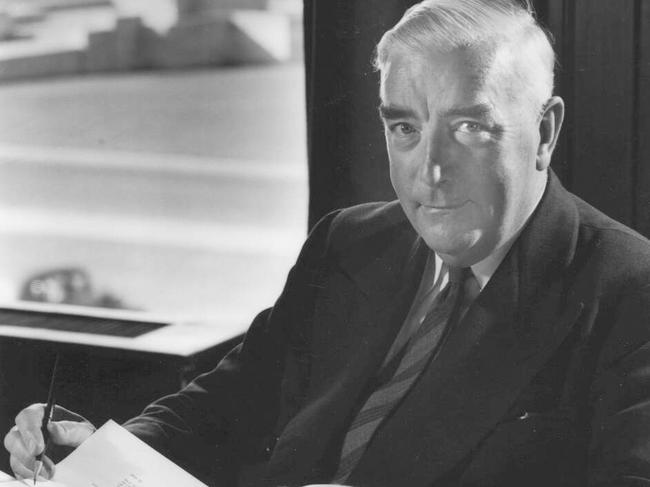
But note what came first. First, he said, “we believe in the Crown”, which he saw as “the enduring embodiment of our national unity” and of the “unity that exists between all the nations of the British Commonwealth”. Following on, he said, “we believe in the individual … in the rule of law … (and) in the spirit of the volunteer”. We further believe, he said, “that rights connote duties … that it is the supreme function of government to assist in the development of personality (or character) … (and) that the class war is a false war”. We believe, he went on, “in the great human freedoms to worship, to think, to speak, to choose, to be ambitious, to be independent, (and) to be industrious”. We believe, he continued, “in social justice”, which he described as “encouraging the strong” as well as “protecting the weak”. And finally, he said, we believe “that under the blessing of divine providence … there is no task which Australia cannot perform and no difficulty that she cannot overcome”.
It could hardly be denied, based on these beliefs and on his wider body of work, that Menzies was for “God, King and Country” or, if you’d prefer, for “faith, flag and family”. On some issues liberal, on others conservative, he was very Australian in wanting a fair go for all who were prepared to have a go, and rejecting distinctions that weren’t based on merit.
Of course, there were some policies that Menzies was comfortable with, that today’s Liberals would find hard, like high tariffs and subsidised industries. He wanted to ban the Communist Party. So not everything that was right in Menzies’ time would be right in ours. But while our understanding of events and our insights into issues might deepen, the values that drive us shouldn’t change, or at least they shouldn’t change that much, if we’re to be true to ourselves over time.
As Burke noted, rightly understood, society is a partnership between those who are dead, those who are living, and those who are yet to be born. No worthwhile entity is simply what its current custodians say it is, without reference to those who came before them, and without thought for those who come after them.
It’s a pity Menzies’ “we believe” statement is not more routinely cited at Liberal events. The NSW state council of the Liberal Party, for instance, still begins with a prayer, drafted by our one-time president, the former commander of the 39th battalion on the Kokoda Track, ambassador and tribunal head, the late Ralph Honner. We keep faith with him by retaining his prayer, so why not with our founder, by reciting what he believed at the start of such a meeting?
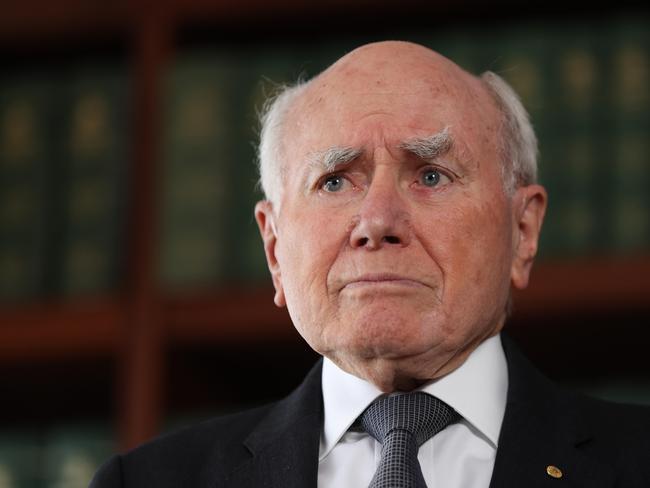
It would be a reminder to all Liberals of the tradition that we should respect and uphold. Occasionally, it might prompt us to reflect on the changing times, and to wonder how Menzies might have changed too. But we could hardly conclude that our understanding of Australian Liberalism is actually better than his.
I suspect that we would be a more united party, that our advocacy would have a better tone, that our policies would have more resonance, and that we would make more of a beneficial difference in government, if we had more of his belief system and had better assimilated his thinking. Now is the time to do so, that we might be a better government next time than we were last time.
So how would someone with Menzies’ instincts respond to a constitutionally entrenched Indigenous Voice to the parliament; or an anti-corruption commission that pre-empted the administration of justice and the presumption of innocence; or a republic with a president elected like a politician rather than a governor-general chosen like a judge? With great wariness, I would suggest, if not outright hostility.
Menzies would shake his head, I’m sure, at the size, scope and intrusiveness of modern government and the fact that there’s, as yet, no Liberal plan to return to surplus and pay down government debt. He would worry about the welfare state and its impact on self-reliance and resilience. He would fret about an education system no longer focused on the best that’s been thought and said. And he would find the contemporary ambivalence about the merits of Western civilisation not just shocking but incomprehensible.
Menzies was always a coalition builder, as his creation of the Liberal Party from a dozen or so splinter parties and groups shows, but his broad church would hardly have included people with no faith whatsoever. Without at least some clear connectedness to Menzies’ version of what “we believe”, the risk is that the Liberal Party could find itself adrift, especially if out of office almost everywhere.
Our need is for a policy platform based on beliefs, values, and virtues that are as likely to be recognised by our grandchildren, as by our grandparents, even if we might yet have the job ahead of us to articulate and explain them.
I reckon that would mean not putting emissions reduction ahead of job preservation and cost-of-living minimisation, especially since nothing we can do here will change the impact of carbon dioxide on climate. And it would mean no new government spending, other than on economic infrastructure or national security, that’s not funded from re-prioritising existing spending.
Menzies placed great store on the home. So why, for instance, continue forcing everyone in the workforce to set aside over 10 per cent of their earnings for a retirement, that could be several decades off, when their most pressing need, at least for people under 40, is the home ownership which is the best guarantee of comfort in retirement anyway?
Menzies wanted “lifters not leaners”. So why, for instance, allow normally physically and mentally fit young people to leave school and go on welfare rather than earning or learning – given that those are options that should always be available to them – thus reinforcing a corrosive something for nothing mentality?
It’s hard to imagine Menzies asserting that it would be right to have nuclear power at sea to give us the range and stealth needed to deter an aggressor, but wrong to have nuclear power on land where it could provide the emissions-free despatchable power that, as yet, nothing else can.
There’s not the slightest doubt that having any of these discussions would raise strong objections, including from plenty of Liberals.
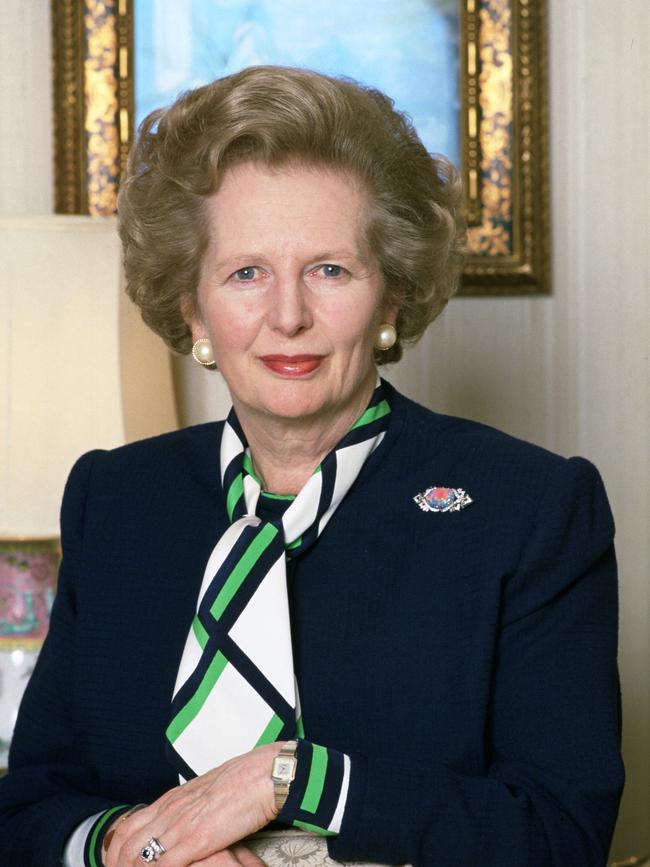
But almost everything that’s worth doing has its challenges and mankind has only advanced over the millennia because people have questioned today’s orthodoxy. Successful politics is not just maximising the number of people who agree with you. It’s being prepared to debate those who disagree and to try to change their minds – and to accept that you might end up having to change your own – depending on the progress of the argument. Because even in a democracy, where parties have to command a majority to succeed, leadership is very different from follower-ship.
“Conventional wisdom” should be questioned when it’s based on wishful thinking or a failure to face facts: as our current energy policy is, or the current view of gender fluidity, or the magic pudding economics of modern monetary theory, or this notion that our society is fundamentally flawed, as opposed to always having some aspects that could be improved.
As Margaret Thatcher once observed, “the facts of life are conservative”. And that should be the ultimate test of all policy: does it actually work in practice? Something might be great in theory but if it doesn’t work in practice it shouldn’t be acquiesced in by a centre right political movement just to avoid a fight. Why go along with something that’s bound to end in tears, just because others are?
Take the pandemic-triggered virus hysteria, that’s now largely dissipated, since upwards of half the population have had Covid, and mostly found that it’s a minor illness. How much lockdown damage might have been avoided if more people in authority had sooner questioned the so-called expert advice?
Take the current emissions obsession. It will quickly dissipate once the lights start to go out, but wouldn’t it be so much better never to be in that predicament?
Take the current tendency to blame the West, especially its English-speaking component, for most of the world’s ills. This wouldn’t last a day if the practical alternative was to live under a very different social order, such as a Chinese communist one or an Iranian Islamist one. But wouldn’t it be better never to have lost our sense of perspective and to have given our own society the credit it’s due for being less unfair and less discriminatory than ever before?
In opposition, the task is less to garner quick popularity than to earn credibility, by warning where things might go and offering alternatives when no one else will. Regardless, Liberals should strive to maintain the Menzies tradition, so that there are credible leaders steeped in it, once our time comes again, as it always will.
Tony Abbott is a former Liberal prime minister. This is an edited extract of his recent Menzies Research Centre speech.


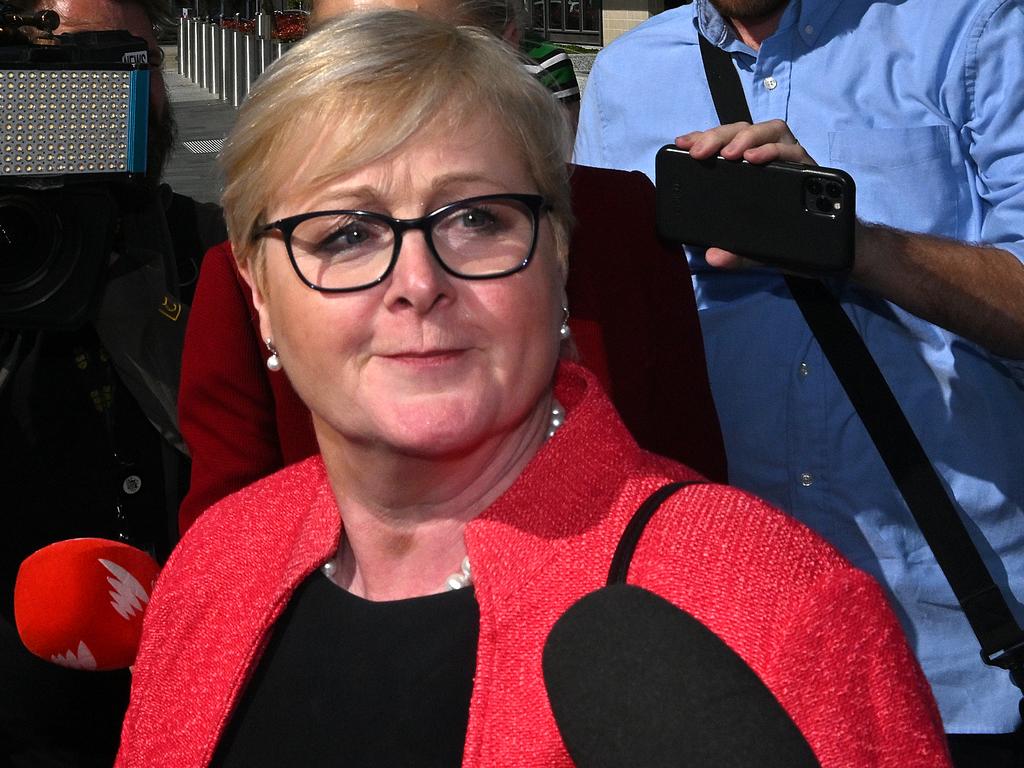

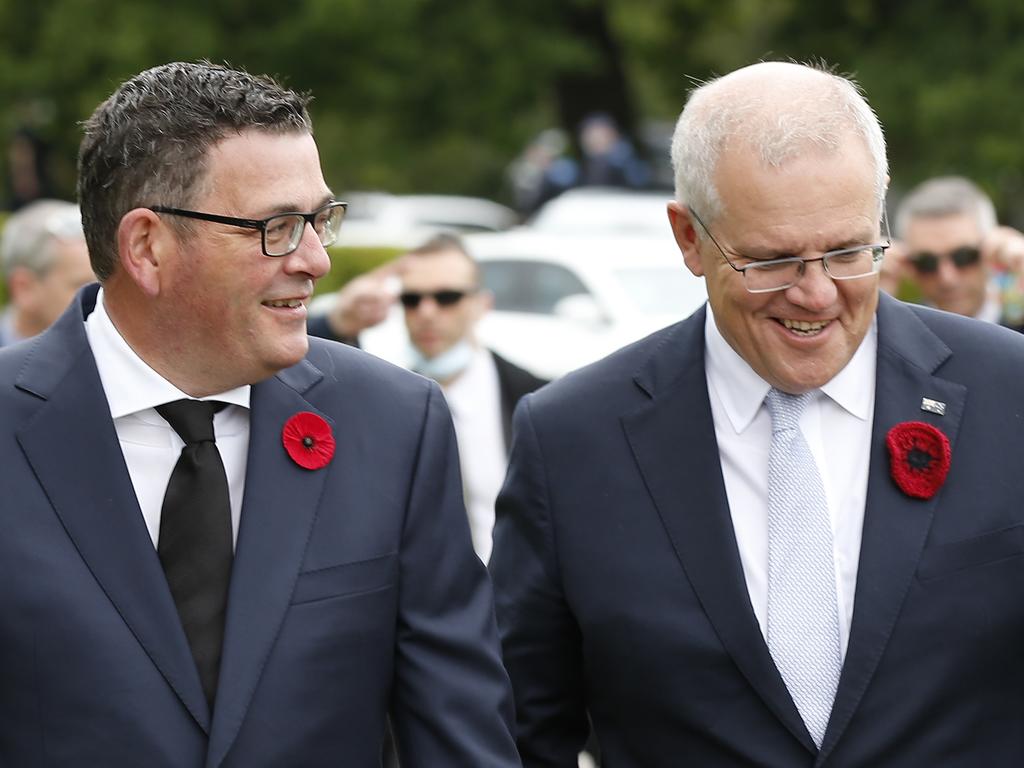

In the final chapter of his latest book, John Howard gives his view on why the Morrison government lost this year’s election. Of course, there was the “it’s time” factor after nine years. But the government didn’t help itself, he said, by lacking a strong fourth-term agenda and refraining to fight on lots of issues from climate to culture. It was a clarion contribution from the greatest living Liberal and a good example of the role former leaders can have, helping to shape our party’s future direction.